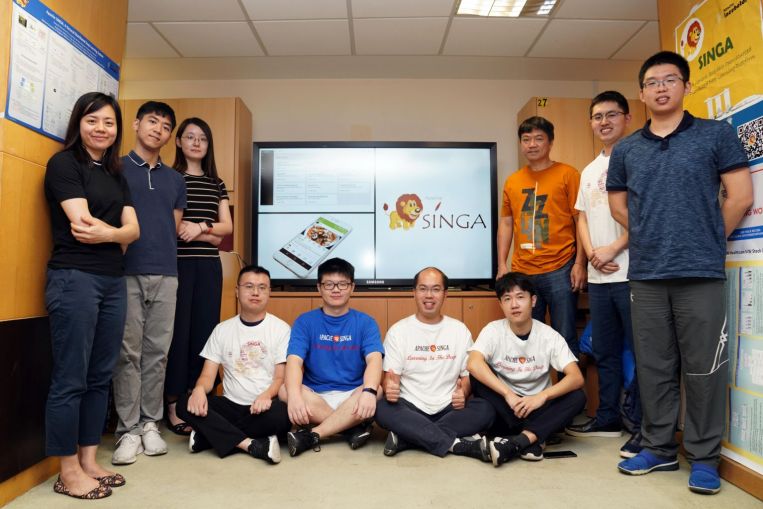SINGAPORE – An artificial intelligence (AI) engine built by a team of researchers from the National University of Singapore (NUS) has become the first software tool from South-east Asia to be ranked in the top 300 projects by the Apache Software Foundation (ASF), the largest open-source software community in the world.
The software, called Apache Singa, joined the ranks of other Apache Top-Level Projects in October.
It is a platform for deep learning, the branch of AI that attempts to most closely approach the workings of a human brain. This means the software can learn on its own and does not need to be fed all the answers by a human.
But deep learning is limited by its need for astronomical amounts of data and computing power. Apache Singa addresses part of this bottleneck by distributing the computing workload across a large number of regular computers without needing an expensive supercomputer, which is out of reach of most businesses and individuals.
The ASF is a non-profit organisation based in the United States. It incubates projects from its community of volunteer software developers, with projects that have demonstrated wide application and staying power graduating to Top-Level status.
Other such projects include the Apache HTTP Server, which is now used by the largest share of all active websites on the Internet. As of August, this was 30 per cent, or more than 55 million websites.
Open-source software refers to free software which has been made available for other developers to download and modify.
The NUS team, led by Professor Ooi Beng Chin from the School of Computing, started working on Singa in 2014 and officially released the AI software in October 2015.
“We saw an increasing demand for deep learning and machine learning platforms from 2012, but there was a lack of platforms which could distribute the computing workload efficiently,” said Prof Ooi on Thursday (Nov 7).
Apache Singa has already been deployed in a variety of uses. Five hospitals here are currently using it to power an image recognition function on their respective versions of a health app called Foodlg.
Foodlg is used to manage conditions such as diabetes, hypertension and high cholesterol.
The AI engine is able to match photos of common local dishes in its database with photos taken by users on their phones of the food they are eating, to advise users on their calorie intake.
The version rolled out by Ng Teng Fong General Hospital in January featured a database of over 200 local dishes including nasi padang, laksa and char siew rice.
The National University Hospital and Singapore General Hospital are also tapping Apache Singa to analyse MRI and X-ray images to improve the identification of health problems.
The NUS team next wants to streamline Apache Singa’s interface so that it can be easily used by laymen lacking expertise in AI.
“(The ranking) is a mark of recognition for Apache Singa, but this is just the beginning,” said Prof Ooi.
“We hope that Apache Singa can make an impact on deep learning in the same way the Apache HTTP Server did for website servers.”
Source: Read Full Article
